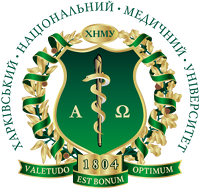Please use this identifier to cite or link to this item:
http://repo.knmu.edu.ua/handle/123456789/19863Full metadata record
| DC Field | Value | Language |
|---|---|---|
| dc.contributor.author | Vizir, Maryna | - |
| dc.contributor.author | Візір, Марина Олександрівна | - |
| dc.contributor.author | Визир, Марина Александровна | - |
| dc.contributor.author | Kovalyova, Olga | - |
| dc.date.accessioned | 2018-06-04T09:42:10Z | - |
| dc.date.available | 2018-06-04T09:42:10Z | - |
| dc.date.issued | 2018 | - |
| dc.identifier.citation | Vizir.M. The role of nesfatin-1 in the development of insulin resistance in hypertensive patients / M. Vizir, O. Kovalyova // Archives of Cardiovascular Diseases Supplements. – 2018. – V. 10, Is. 1. – P. 111. – DOI: 10.1016/j.acvdsp.2017.11.228. | ru_RU |
| dc.identifier.issn | 1878-6480 | - |
| dc.identifier.uri | https://repo.knmu.edu.ua/handle/123456789/19863 | - |
| dc.description.abstract | Comorbidity of hypertension and metabolic disorders increases cardiovascular risk substantially. Insulin resistance (IR) is an important pathogenetic link in these changes. It is important to research the effect of metabolically active substances in such patients on changes in insulin resistance. Purpose: to investigate the association between plasma nesfatin-1 (N1) levels and the IR-indices in patients with essential hypertension (EH). Methods. 83 patients with EH were examined. The group 1 consisted of 27% of patients with EH and type 2 diabetes mellitus. The group 2 included 28% of patients with EH and prediabetes by criteria of the World Health Organization. Patients of the group 3 (45%) had EH and did not have dysglycemia. Insulin and N1 levels were determined by enzyme immunoassay method. The main indices of IR were calculated, such as HOMА-IR, НОМА-βcell, Caro, QUICKI, FIRI, Belfiore using standard formulas. Results. Patients with concomitant dysglycemia had significantly higher values of insulin, indices HOMА-IR, Caro, FIRI and lower НОМА-βcell, QUICKI and Belfiore (p<0,001). There weren’t any significant differences between N1 levels in groups. N1 had a negative correlation with postprandial glucose (r=-0.193, p<0.05), especially in the case of concomitant prediabetes (r=-0,381, p<0,05). Patients with higher level of N1 had higher values of НОМА-βcell (χ²=7,85, p<0,05) and lower Caro (r=-0,107, p<0,1) indices. There were correlations between N1 and insulin levels (r=0,180, p<0,05), indices HOMА-IR (r=0,181, p<0,05), QUICKI (r=-0,181, p<0,05), Belfiore (r=-0,181, p<0,05) in group 3. Conclusions. There were the correlations between N1 and insulin level, IR-indices in patients with EH and normoglycemia. It may indicate the insulinotropic action of the peptide. The relationship between the level of N1 and the HOMA-βcell index may be due to producing of N1 by pancreas. No correlation has been established in the presence of prediabetes or type 2 diabetes. | ru_RU |
| dc.language.iso | en | ru_RU |
| dc.publisher | ELSEVIER | ru_RU |
| dc.subject | nesfatin-1 | ru_RU |
| dc.subject | hypertension | ru_RU |
| dc.subject | insulin resistance | ru_RU |
| dc.title | The role of nesfatin-1 in the development of insulin resistance in hypertensive patients | ru_RU |
| dc.type | Thesis | ru_RU |
| Appears in Collections: | Наукові роботи молодих вчених. Кафедра внутрішньої медицини № 1 | |
Files in This Item:
| File | Description | Size | Format | |
|---|---|---|---|---|
| 1-s2.0-S1878648017307735-main.pdf | 45,13 kB | Adobe PDF |  View/Open |
Items in DSpace are protected by copyright, with all rights reserved, unless otherwise indicated.

